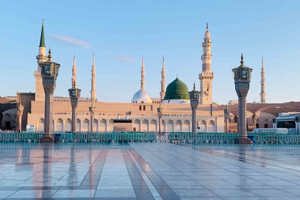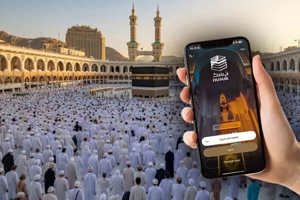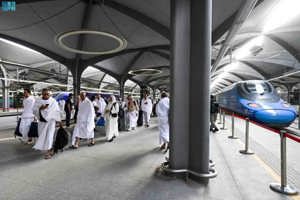How Umrah Transformed My Perception of Beauty
17 Sep, 2025
For most of my life, I associated beauty with outward appearances—style, looks, and the way people presented themselves. Like many, I grew up in a world where physical beauty was constantly emphasized, celebrated, and compared. But when I performed Umrah, the lesser pilgrimage to the holy cities of Makkah and Madinah, something inside me shifted. The experience was not just about completing rituals; it redefined the way I saw beauty, both within myself and in the world around me.
In this article, I share how Umrah changed my relationship with beauty—moving me from a surface-level understanding toward a deeper, spiritual appreciation that is rooted in faith, simplicity, and inner peace.
The World’s Definition of Beauty
In today’s world, beauty is often defined by external appearances and material standards. Social media, advertising, and popular culture frequently highlight flawless skin, stylish clothing, and luxury lifestyles as markers of attractiveness. This perspective creates an image of beauty that is largely surface-level—focused on how someone looks rather than who they are. As a result, many people feel pressured to meet unrealistic expectations, constantly comparing themselves to carefully curated images. While this worldly definition of beauty can be appealing, it often overlooks the deeper qualities—such as kindness, humility, and inner peace—that create lasting and meaningful beauty.
First Glimpse of True Beauty in Makkah
Arriving in Makkah for Umrah was overwhelming. The sight of the Kaaba, surrounded by thousands of believers from every corner of the world, instantly shifted my perspective. What struck me most was not how people looked on the outside, but the radiance of devotion on their faces.
- Men and women of all ages stood shoulder to shoulder.
- Everyone wore simple clothing—white ihram for men and modest attire for women.
- Differences of nationality, wealth, and appearance disappeared.
In that moment, I realized that beauty is not in clothes or status—it is in humility, equality, and standing before Allah with sincerity.
Simplicity: The Beauty of Ihram
The Ihram is a powerful reminder that true beauty lies in simplicity and humility. By wearing two unstitched white garments for men and modest attire for women, all pilgrims stand equal before Allah, regardless of wealth, status, or background. The absence of adornments, jewelry, or fashionable clothing strips away worldly distinctions, allowing the focus to shift entirely toward worship and spirituality. In this simplicity, I discovered a unique kind of beauty—one that radiates from purity of intention, unity among believers, and the humbling realization that we are all servants of Allah.
Beauty in Diversity
Another transformative moment came when I witnessed the diversity of pilgrims. People from Africa, Asia, Europe, and beyond all gathered in one sacred place, chanting the same prayers and circling the Kaaba together.
Despite language barriers, different cultures, and varied appearances, there was an undeniable sense of unity. The beauty of diversity was evident: every pilgrim reflected the same devotion and love for Allah. This taught me that beauty is not uniformity—it is the harmony of differences bound by a common faith.
Spiritual Beauty Over Physical Beauty
During Umrah, I realized that physical beauty fades in comparison to the radiance of a sincere heart and soul. The glow on the faces of worshippers lost in prayer, the tears shed while seeking forgiveness, and the serenity that follows genuine remembrance of Allah reflected a beauty no outward appearance could match. True beauty, I learned, is not defined by flawless features or expensive attire, but by humility, faith, and the peace that comes from closeness to the Creator. This deeper form of beauty lasts far longer than anything the world celebrates.
Redefining Self-Image
Performing Umrah also reshaped the way I saw myself. Instead of criticizing my looks or comparing myself to others, I started valuing qualities like patience, kindness, and gratitude. These qualities, I realized, are what make a person truly beautiful.
The words of the Prophet Muhammad (peace be upon him) echoed in my mind:
“Allah does not look at your appearance or wealth, but at your hearts and deeds.”
This hadith became a reminder that beauty in Allah’s eyes has nothing to do with external appearances but everything to do with inner character.
The Beauty of Sacred Places
Makkah and Madinah themselves reflect another kind of beauty—the beauty of spirituality and history. The Kaaba, Masjid al-Haram, and Masjid an-Nabawi radiate peace that cannot be captured in pictures.
- The call to prayer resonating through the air.
- The serenity of standing in front of the Prophet’s Mosque.
- The sight of millions moving in harmony around the Kaaba.
These are moments where beauty is not seen with the eyes but felt deeply in the soul.
Lessons Learned About Beauty
Through Umrah, I came to several realizations:
- Beauty is fleeting if tied only to the physical.
- Simplicity enhances inner beauty.
- Unity and diversity create a higher form of beauty.
- True beauty is in the heart—faith, kindness, humility.
- Spiritual experiences can transform how we see ourselves and others.
These lessons continue to shape my daily life, reminding me not to be consumed by worldly standards but to seek beauty in faith and character.
Bringing the Lessons Back Home
Returning from Umrah, I carried with me a renewed perspective on what it means to live beautifully. The lessons of simplicity, humility, and inner peace became guiding principles in my daily life. I found myself less concerned with outward appearances and more focused on nurturing qualities like patience, kindness, and gratitude. Even in ordinary moments—whether offering a smile, helping someone in need, or pausing for reflection—I began to see reflections of the beauty I experienced during pilgrimage. Umrah taught me that true beauty is not left behind in Makkah and Madinah; it is something to embody and live with every day.
Performing Umrah was a journey that transformed not only my faith but also my perception of beauty. What once seemed important—appearance, material possessions, social image—now feels secondary compared to the radiance of faith, the beauty of simplicity, and the peace that comes from closeness to Allah.
Beauty, I learned, is not skin-deep. It is found in humility, devotion, kindness, and spiritual connection. And that realization is perhaps the most beautiful gift Umrah has given me.
Related News
-

12 Sep, 2025 Can Tourists Perform Umrah on a Visit Visa?
Tourists visiting Saudi Arabia on a visit visa can also perform Umrah, provided they meet the visa requirements and follow the Kingdom’s guidelines. This offers flexibility for travelers who wish to combine tourism with pilgrimage.
read more -

02 Sep, 2025 Masjid Nabawi Gates: Complete Visitor Guide with Hotel Recommendations
A detailed visitor guide to the gates of Masjid Nabawi in Madinah, with insights on each entrance and recommendations for nearby hotels to ensure a comfortable stay.
read more -

22 Aug, 2025 Nusuk Umrah Marks a New Era for International Hajj and Umrah Pilgrims
Nusuk Umrah introduces modern digital services, making Hajj and Umrah travel easier and more accessible for international pilgrims.
read more -

19 Aug, 2025 Saudi Arabia Strengthens Pilgrimage Transport with 20 Additional Haramain Trains
Saudi Arabia has expanded the Haramain Railway by adding 20 new high-speed trains, improving Hajj and Umrah travel between Makkah, Madinah, and Jeddah.
read more -

12 Aug, 2025 Umrah Hospitality Upgraded as Millennium Hotels MEA and Taiba Relaunch in Madinah
Millennium Hotels MEA and Taiba relaunch in Madinah, enhancing hospitality services for Umrah pilgrims with upgraded facilities and guest experiences.
read more
